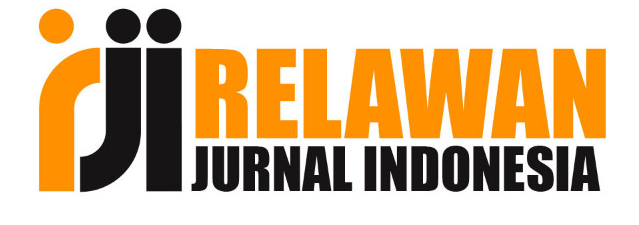Developing Students’ Writing and Digital Literacy using Weblog at Tridinanti University of Palembang
DOI:
https://doi.org/10.36982/jge.v7i2.750Abstract
AbstractToday, we live in a dynamic digital world where both educators and students are challenged with the ever changing technological developments. Thus, this research was aimed at investigating the development of students’ writing and digital literacy through weblog. The sample of the study was 20 students of the fourth semester English study program of Tridinanti University Palembang. The researchers used purposive sampling as the way of choosing the sample because the sample is taught by the researchers in writing class. The researchers applied quasi-experimental design in term of pretest-posttest non equivalent group design. Moreover, there are three types of data collection used by the researchers; they are test, questionnaire and observation. After the study, it was found out that the results of posttest between experiment and control group show significant difference with t value of posttest was 11.739, sig 0.000 while t value of gain score was 7.671, sig 0.000. Accordingly, all aspects of writing both posttest and gain score show significant differences. Furthermore, it was also found that the developments of digital literacy components from the highest to the lowest are as follows: 1) information sources (36%), 2) digital competencies (23%), 3) attitude and perspective (24%), and 4) basic ICT skill (17%). The results indicate that the concept of digital library in this study encouraged students’ knowledge about information sources. The highest progress made by the students from the observation results was in students’ basic ICT skill then followed by digital competencies because the number of the students who were in excellent category was almost or closely above 50% for these two components. Meanwhile, though attitude and perspective and information sources also increased still they were not as high as other two components as there was only small number of the students who were in excellent category. The results reveal that weblog is effective to develop students’ writing and digital literacy. In addition, students showed positive views because using blog was very interesting and it provided more cooperation between lecturer and students.
Keywords : weblog; ICT; writing literacy; digital literacy.
Abstrak
Saat ini, kita hidup di dunia digital yang dinamis di mana dosen dan masiswa ditantang dengan perkembangan teknologi yang terus berubah. Dengan demikian, penelitian ini bertujuan untuk menyelidiki perkembangan tulisan mahasiswa dan literasi digital melalui weblog. Sampel penelitian ini adalah 20 mahasiswa dari program studi bahasa Inggris semester empat Universitas Tridinanti Palembang. Para peneliti menggunakan purposive sampling sebagai cara memilih sampel karena sampel diajarkan oleh para peneliti di kelas menulis. Para peneliti menerapkan desain quasi-eksperimental dalam hal desain kelompok non-setara pretest-posttest. Selain itu, ada tiga jenis pengumpulan data yang digunakan oleh para peneliti; mereka adalah tes, kuesioner dan observasi. Setelah penelitian, ditemukan bahwa hasil posttest antara eksperimen dan kelompok kontrol menunjukkan perbedaan yang signifikan dengan nilai t postes adalah 11,739, sig 0,000 sedangkan t nilai skor gain adalah 7,671, sig 0,000. Dengan demikian, semua aspek penulisan posttest dan gain score menunjukkan perbedaan yang signifikan. Selain itu, juga ditemukan bahwa perkembangan komponen literasi digital dari yang tertinggi ke yang terendah adalah sebagai berikut: 1) sumber informasi (36%), 2) kompetensi digital (23%), 3) sikap dan perspektif (24% , dan 4) keterampilan dasar TIK (17%). Hasil menunjukkan bahwa konsep perpustakaan digital dalam penelitian ini mendorong pengetahuan mahasiswa tentang sumber informasi. Kemajuan tertinggi yang dibuat oleh mahasiswa dari hasil pengamatan adalah dalam keterampilan TIK dasar mahasiswa kemudian diikuti oleh kompetensi digital karena jumlah siswa yang berada dalam kategori sangat baik hampir atau hampir di atas 50% untuk dua komponen ini. Sementara itu, meskipun sikap dan perspektif dan sumber-sumber informasi juga meningkat, namun tidak setinggi dua komponen lainnya karena hanya ada sedikit mahasiswa yang berada dalam kategori sangat baik. Hasil penelitian menunjukkan bahwa weblog efektif untuk mengembangkan tulisan dan literasi digital mahasiswa. Selain itu, mahasiswa menunjukkan pandangan positif karena menggunakan blog sangat menarik dan memberikan lebih banyak kerja sama antara dosen dan mahasiswa.
Kata kunci : weblog: TIK, literasi tulisan; literasi digitalReferences
Akdağ, Emrah & Yonca Özkan. 2017. Enhancing Writing Skills of EFL Learners through Blogging. The Reading Matrix: An International Online Journal Volume 17, Number 2, September 2017
Alfaki, Ibrahim Mohamed. 2015. University Students’ English Writing Problems: Diagnosis and Remedy. International Journal of English Language Teaching Vol.3, No.3, pp.40-52, May 2015.
Diem, C. D. 2011. 3-Ls: A model for teaching young learners. TEFLIN Journal, 22(2), 125-149.
Gerot, Linda and Wignell, Peter. 1994. Making Sense of Functional Grammar-Sydney: Gerd Stabler.
Huffaker, D. 2004. The educated blogger: Using weblogs to promote literacy in the classroom. First Monday, 9(6). Retrieved from http://firstmonday. org/ojs/index.php/fm/article/view/1156/1076
Jun, F. U., & Pow, J. 2011. Fostering digital literacy through web-based learning: A case study. Journal of Information Technology Education: Innovations in Practice, 10, 58-71.
Kholiq, M & Ningsih, T. W. R. 2011. Literacy skills in the context of Indonesian discourse in the field of scientific writing. Proceeding of Uzbek- Indonesian Joint International Conference (pp. 27- 31). Jakarta: Gunadarma University.
Kohsamut, Tinnadit and Usaporn Sucaromana. 2017. Using Blog to Enhance English Writing Skill among High School Students in Thailand. PEOPLE: International Journal of Social Sciences. Pg. 1337-1348.
Mynard, J. 2007. A Blog as a Tool for Reflection for Foreign Language Learners. Asian EFL Journal, 1-10.
Noytim, U. 2010. Weblogs Enhancing EFL Students’ English language learning. Procedia- Social and Behavioral Sciences, 2(2), 1127-1132.
Pinkman, K. 2005. Using Blogs in the Foreign Language Classroom: Encouraging Learner Independence. The JALT CALL Journal, 1(1), 12- 24.
Yang, S-H. 2009. Using Blogs to Enhance Critical Reflection and Community of Practice. Educational Technology & Society, 12(2), 11-21.
Wu, W. S. 2006. The Effect of Blog Peer Review and Teacher Feedback on the Revision of EFL Writings. Journal of Education and Foreign Languages and Literature.
Downloads
Published
How to Cite
Issue
Section
License
Global Expert: Jurnal Bahasa dan Sastra is published by Universitas Indo Global Mandiri and licensed under a Creative Commons Attribution-ShareAlike 4.0 International License.










